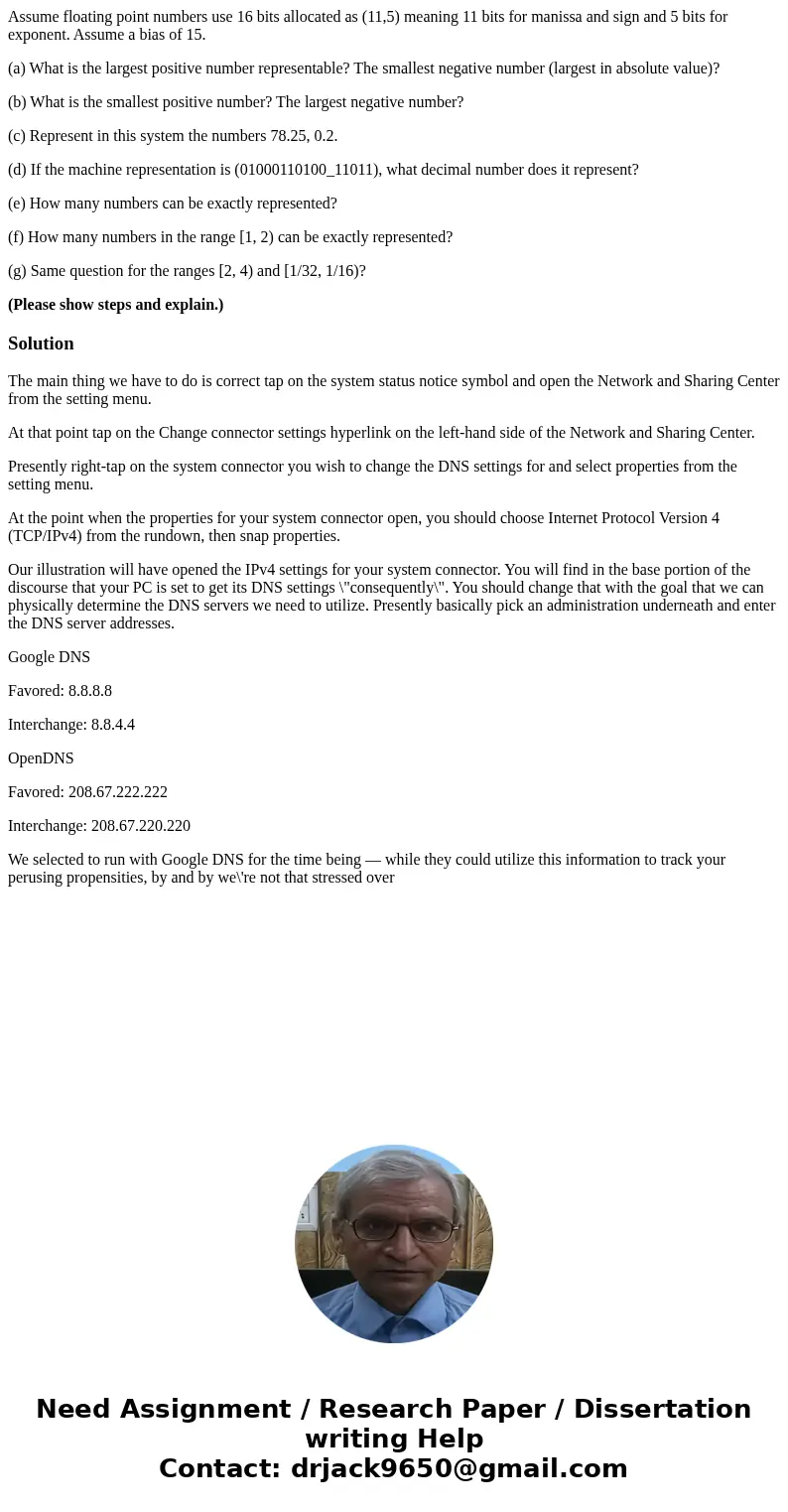Assume floating point numbers use 16 bits allocated as 115 m
Assume floating point numbers use 16 bits allocated as (11,5) meaning 11 bits for manissa and sign and 5 bits for exponent. Assume a bias of 15.
(a) What is the largest positive number representable? The smallest negative number (largest in absolute value)?
(b) What is the smallest positive number? The largest negative number?
(c) Represent in this system the numbers 78.25, 0.2.
(d) If the machine representation is (01000110100_11011), what decimal number does it represent?
(e) How many numbers can be exactly represented?
(f) How many numbers in the range [1, 2) can be exactly represented?
(g) Same question for the ranges [2, 4) and [1/32, 1/16)?
(Please show steps and explain.)
Solution
The main thing we have to do is correct tap on the system status notice symbol and open the Network and Sharing Center from the setting menu.
At that point tap on the Change connector settings hyperlink on the left-hand side of the Network and Sharing Center.
Presently right-tap on the system connector you wish to change the DNS settings for and select properties from the setting menu.
At the point when the properties for your system connector open, you should choose Internet Protocol Version 4 (TCP/IPv4) from the rundown, then snap properties.
Our illustration will have opened the IPv4 settings for your system connector. You will find in the base portion of the discourse that your PC is set to get its DNS settings \"consequently\". You should change that with the goal that we can physically determine the DNS servers we need to utilize. Presently basically pick an administration underneath and enter the DNS server addresses.
Google DNS
Favored: 8.8.8.8
Interchange: 8.8.4.4
OpenDNS
Favored: 208.67.222.222
Interchange: 208.67.220.220
We selected to run with Google DNS for the time being — while they could utilize this information to track your perusing propensities, by and by we\'re not that stressed over

 Homework Sourse
Homework Sourse